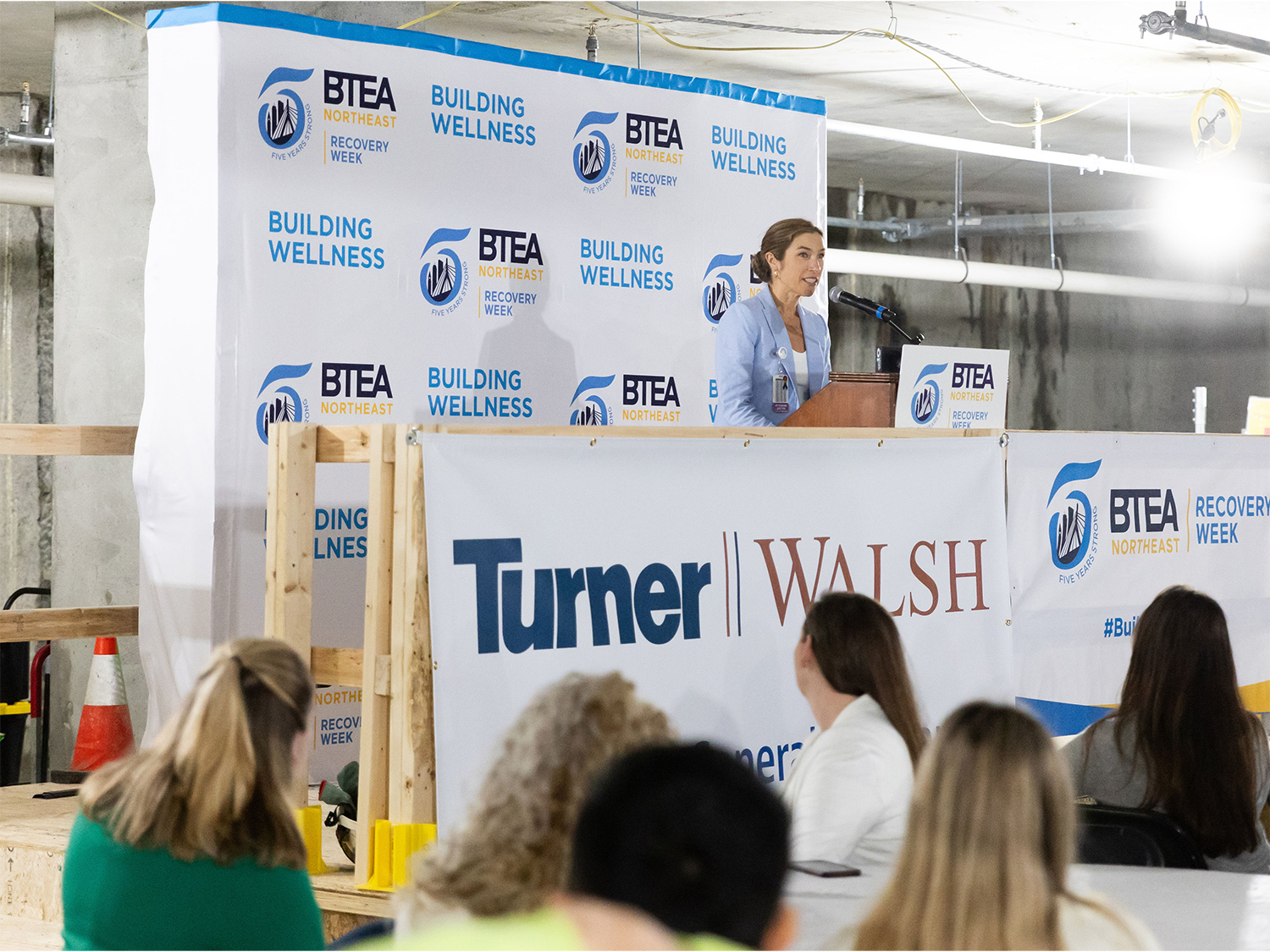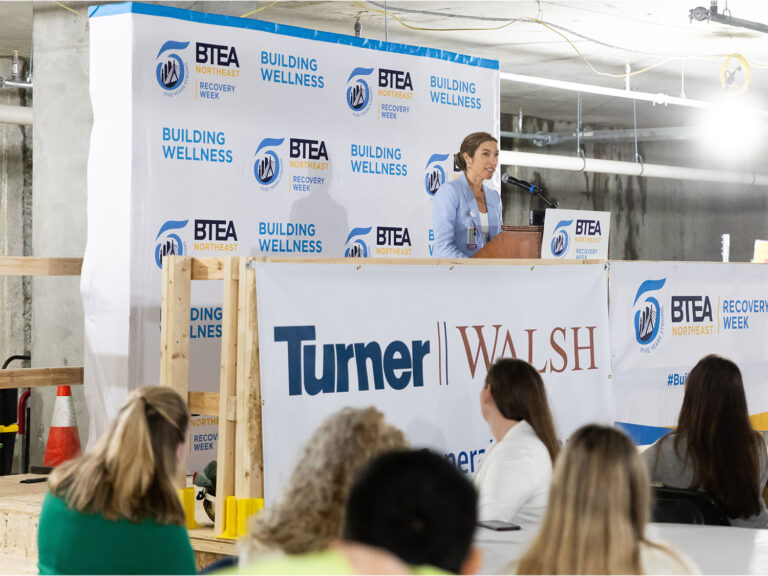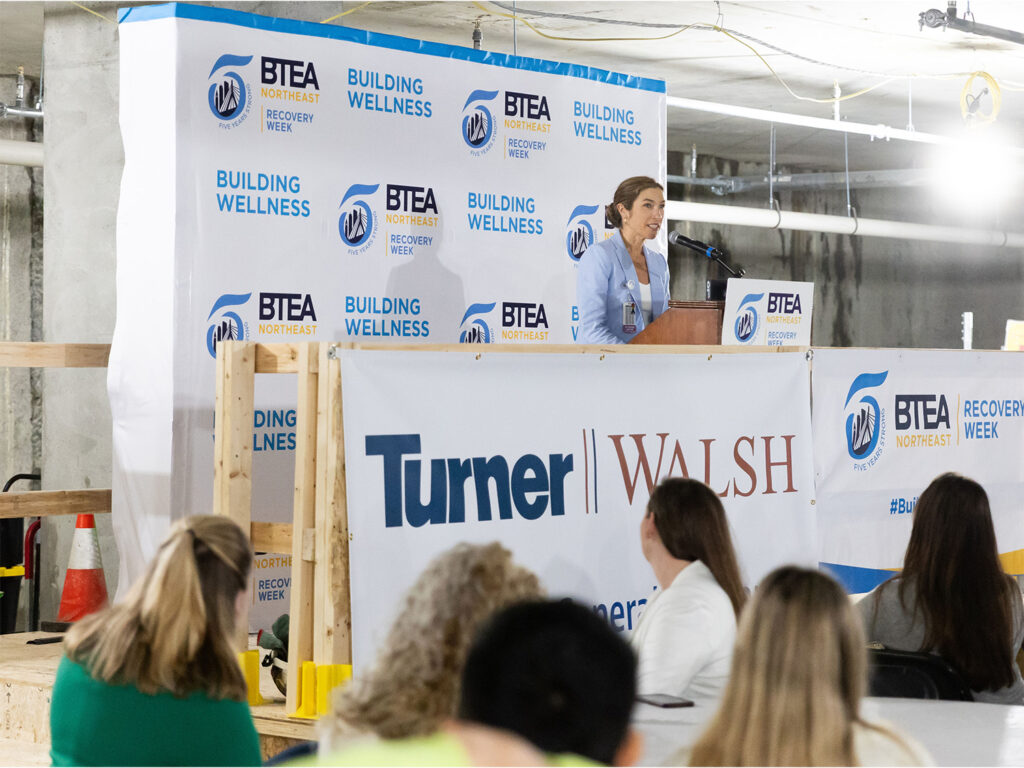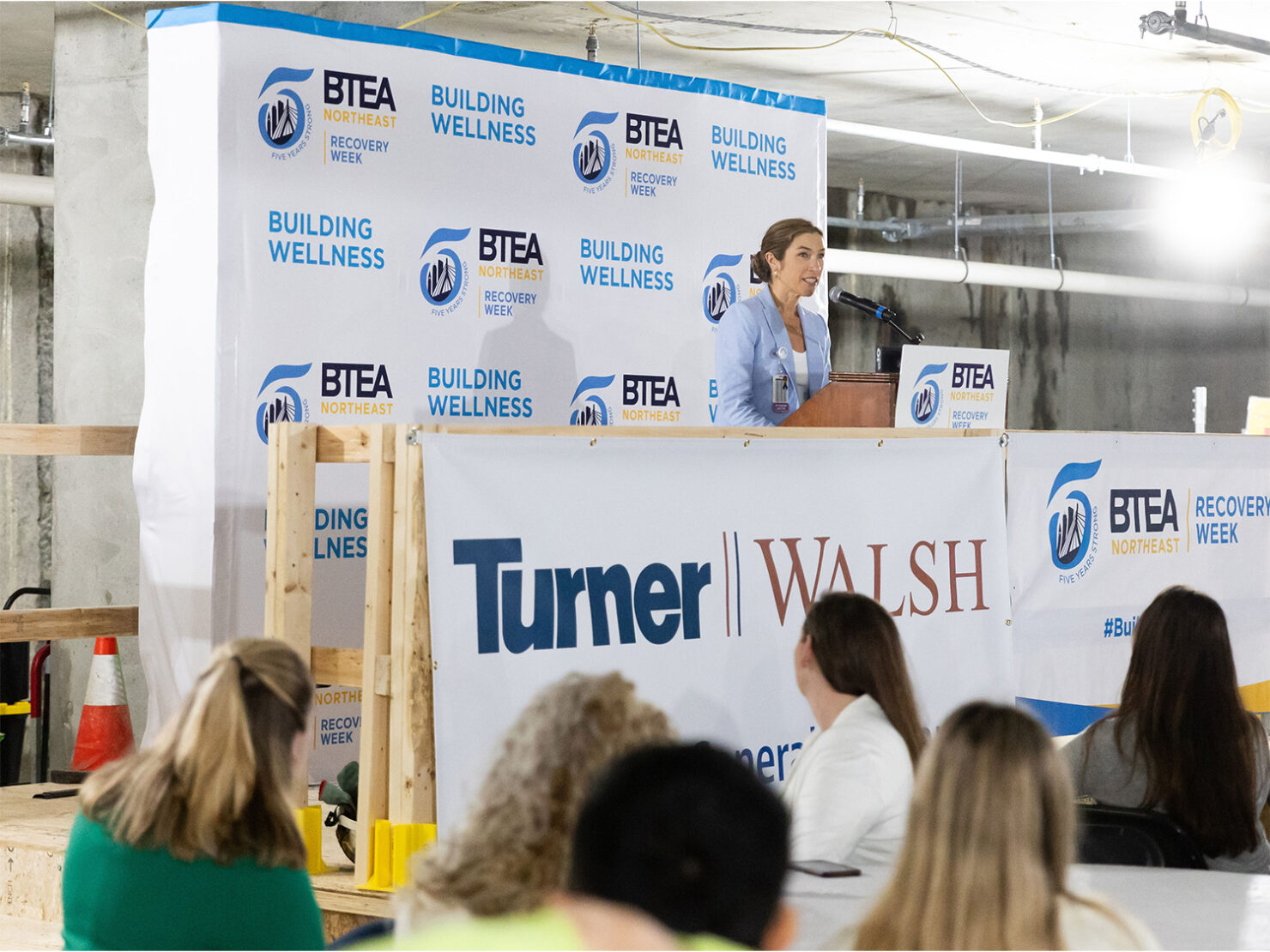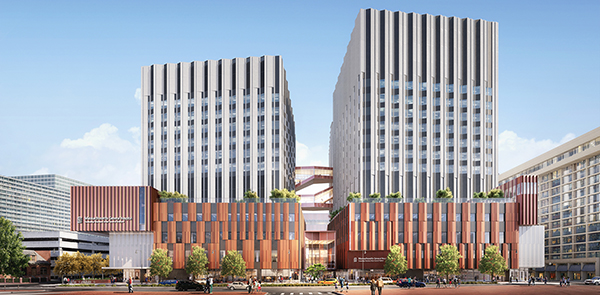Since Tom Gunning, executive director of the Boston-based Building Trades Employers’ Association (BTEA) Northeast, became sober nine years ago, Massachusetts General Hospital has been a major presence in his life. It’s the place where he was treated by and developed a close relationship with addiction psychiatrist Gregory Acampora, MD; where his father was treated for pancreatic cancer by Jeffrey Clark, MD, and Helen Shih, MD, MS, MPH; and, most recently, where he hosted a stand-down — a temporary pause in work — on the Phillip and Susan Ragon Building construction site as part of Building Trades Recovery Week. For this particular stand-down, the Ragon Building team was served lunch and had an open conversation about substance use disorder and the path to recovery.
Fifth Annual Building Trades Recovery Week
On Friday, May 2, more than 700 union construction workers and building trades employers paused work on the construction of the Ragon Building — currently the largest job site in Boston — to gather for a meal and hear from leaders, like Tom, who are working to address the mental health and substance use crisis gripping the construction industry.
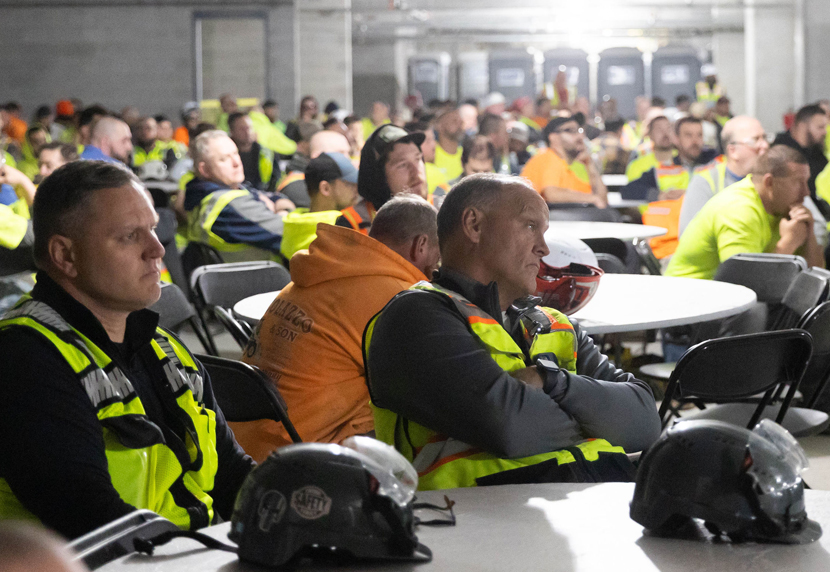
According to the National Institutes of Health, construction workers account for 23% of all opioid overdose deaths. Tom has spent his career working to lower that staggering number, from hosting lunches with inspiring speakers for trade workers in the northeast, to sharing lifesaving resources like first aid, CPR and Narcan (an overdose reversal medication) trainings.
The jobsite stand-down marked the conclusion of the fifth annual Building Trades Recovery Week and served as a kickoff to May’s National Mental Health Awareness Month, along with National Safety Week for the building trades. Attendees heard from several speakers about the significance of community support, including Tom, who shared his 10-year struggle with addiction and becoming unhoused, and his ultimate path to treatment and recovery, and former New England Patriots special teams captain Matthew Slater, who emphasized the importance of leaning on your “teammates.”
Sarah Wakeman, MD, senior medical director for substance use disorder at Mass General Brigham, also addressed attendees. “It is the privilege of my life to work to help our patients overcome addiction,” she said. “The tragedy to me is that far too few people are able to access what we know to be effective treatment for substance use disorder. Gatherings and conversations like this are essential to spreading awareness in our community around how to ask for help and where to turn.”
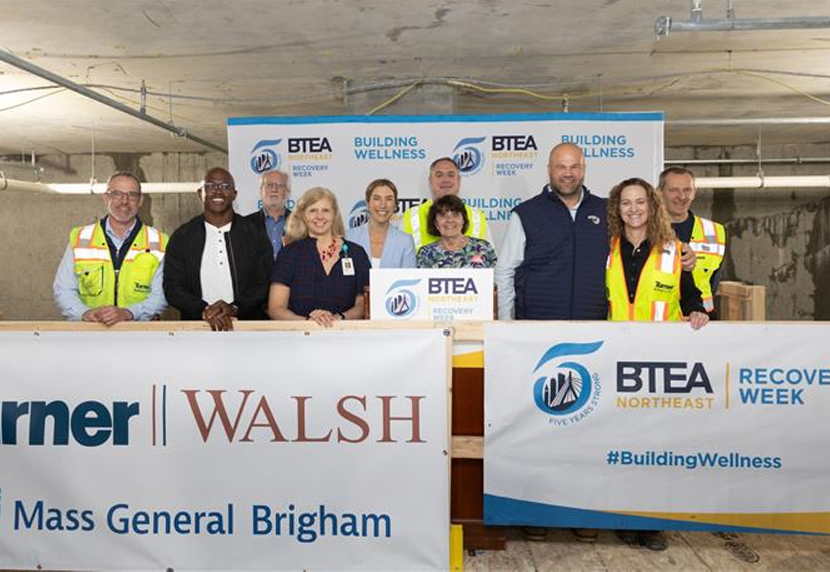
A Rewarding Road Back
When Tom’s father was diagnosed with pancreatic cancer, Tom saw it as his responsibility to repay the support his family had given him while he battled addiction by serving as his father’s caretaker. Spending long days and nights at Mass General while his father was in treatment, he connected with Drs. Clark and Shih, and says he is grateful to them for their support of his family during that difficult time.
Tom credits his ability to care for his father in part to Dr. Acampora, who was a major influence on him as he worked towards sobriety and who helped to inform Tom’s advocacy efforts around substance use recovery and harm reduction. Tom asked Dr. Acampora to speak at the very first Recovery Week stand-down, kicking off an annual tradition of advocacy for the BTEA.
Coming Forward is the Hardest Part
One of Tom’s greatest accomplishments has been ensuring that Narcan is present on all job sites in Massachusetts, a move that saved a life only a week after it was implemented. Tom knows the importance of Narcan firsthand: it saved his life years earlier during a heroin overdose, after which he had to re-learn how to breathe.
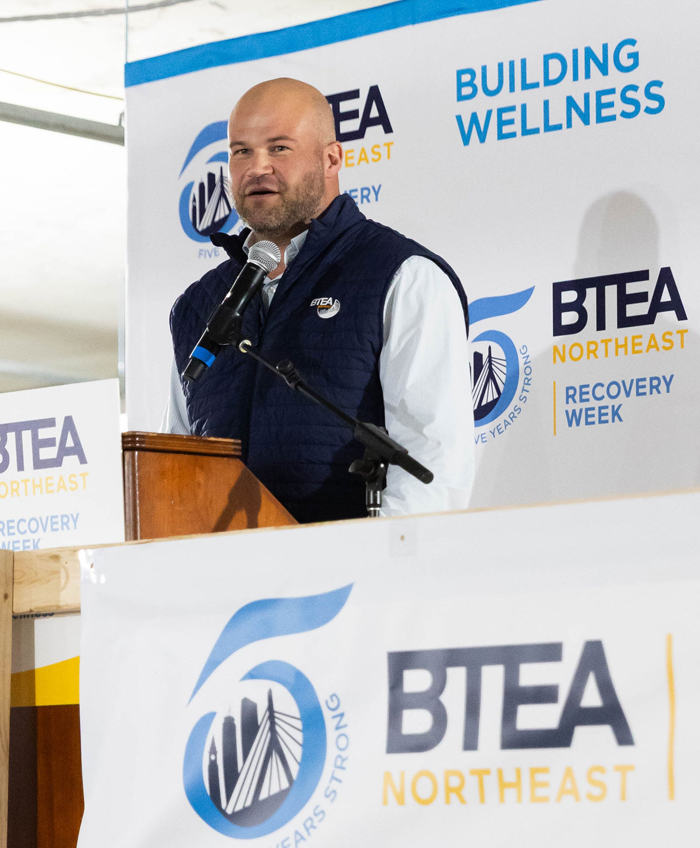
“Construction workers are more prone to injury than most professions, and therefore more likely to be prescribed a medication that could lead them down a path of opioid addiction,” Tom says. “If they don’t go to work, they don’t get paid, so many construction professionals find themselves taking whatever will help them get through the day.”
Tom and the team behind Recovery Week hope to lower the disproportionate percentage of opioid overdose deaths among construction workers by putting safety measures, such as Narcan on job sites, in place. They are also working to break down the stigma around addiction and connect construction professionals to substance use recovery resources in their community — for the Ragon Building construction team, that means many resources available right on Mass General’s campus.
Tom’s message is simple: It’s ok to have a problem, it’s ok to need help and it’s ok to ask for it.
“Coming forward is the hardest part, but doing it lifted a huge weight off of my shoulders,” Tom said in his remarks at the Ragon Building stand-down. “I’m so grateful today that I did the things I didn’t want to do in order to overcome this disease. If I can help just one person here today start taking the steps to get sober, I’ll have done my job.”
To learn more about how you can support the Phillip and Susan Ragon Building, contact us.
